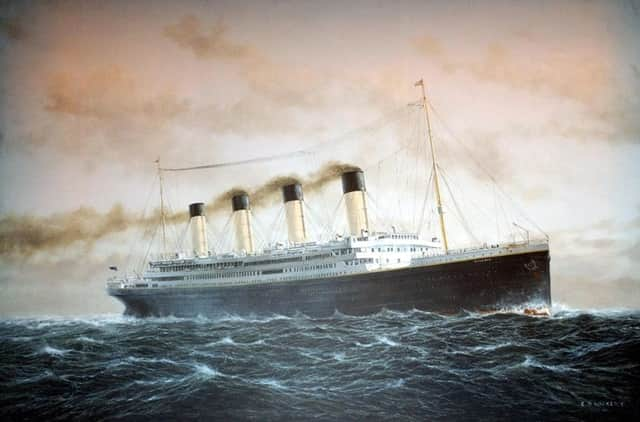Poignant tales of Scots lost at sea put online


A complete record of the deaths of Scottish sailors from late Victorian times until 1974 has been put online for the first time through the Scotland’s People genealogical resource.
Poignant stories of drowned fishermen, casualties of naval battles and victims of maritime tragedies are among the 14,000 new records put online by the National Records of Scotland through Scotland’s People.
Advertisement
Hide AdIncluded in the new database is William M Murdoch, the Dalbeattie-born first officer on the fateful maiden voyage of RMS Titanic on 15 April 1912.
He appears with 24 other Scottish-born crew members among the 673 men and women listed in the returns. Like most of them, Murdoch was living in Southampton, where the White Star Line was based. Seventeen members of the crew of the Lusitania, torpedoed by the Germans on 7 May 1915, can be identified as Scottish, including John Thompson or Thomson, an ordinary seaman from Annan, who was just 15. While Alfred R Thorn, a waiter, was listed as aged 50 and born in Greenock.
Given the prominent role Scotland played in empire-building and the country’s history of emigrating, there are cases of sailors dying on long voyages to new countries.
Many of the deaths off the north-west coast of Scotland were of men who drowned after falling or being accidentally knocked overboard from fishing boats. John McIver, aged 34, was a deck hand from Swordale in Lewis, who drowned in November 1905 ten miles north-west of Gairloch Head in The Minch. He was working on the Stornoway-registered boat the Grateful.
John McLauchlan was the captain of the steel-hulled sailing ship Durbridge, with more than 36 years’ experience at sea from the age of 15. After seventeen years on sailing ships he obtained his master’s certificate in 1884.
Advertisement
Hide AdHe captained the Durbridge on voyages between South Africa, Australia and South America. On 13 December 1902, he died suddenly at sea off the southern tip of Africa. The report by the next most senior officer of how he found the captain dead in his cabin is recorded.
Culture secretary Fiona Hyslop, said: “Scotland is a maritime nation with fascinating stories and an important seafaring history and these new online registers will provide wider access to this heritage.”
Advertisement
Hide AdTim Ellis, Registrar General and Keeper of the Records of Scotland, said: “The returns open a window into the lives of Scots seafarers in the first half of the twentieth century.
“They reveal the dangers experienced by seamen and passengers alike, and provide useful information for anyone wishing to discover more about their ancestors.”